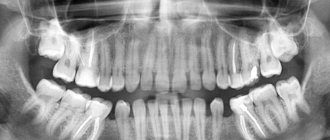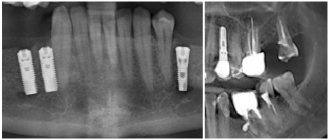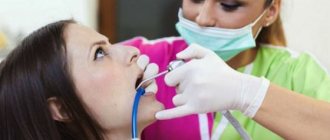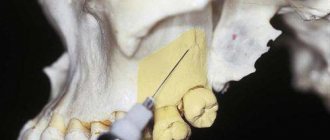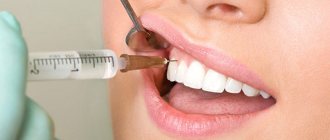In Russia, more than a million people are HIV-positive, and these are only those who know about their status and are registered with a specialized medical center AIDS Center Statistics. . Many people do not yet realize that they are sick.
This is a real epidemic, so fears are understandable. Even at school they tell you that HIV is transmitted through blood and some biological fluids, that you need to use condoms and, of course, not inject yourself with anything. But is this enough?
In the same schools, since the time I was studying, there have been horror stories about contaminated needles, which are deliberately scattered in sandboxes by embittered drug addicts (I must say, used syringes in urban bushes are not uncommon). Adults don’t find themselves in sandboxes as often, but they are no less afraid.
After all, HIV is transmitted through blood. So, any place where blood appears is dangerous? For example, a dentist's chair or a nail salon. You never know who was at the master’s, suddenly one of the infected million.
I gave up trimmed manicure once and for all several years ago, so the chances of picking up something unpleasant have become less. Interestingly, I have not stopped fearing infection. I can’t give any rational explanation for this fear, so I just watch with an eagle’s eye every time what the master has with his tools, and pester me with questions about how it’s all processed. By the way, finding a normal and responsible craftsman who does not neglect the cleanliness of tools is quite a quest.
Lidiya Suyagina
Let's try to figure out what to be afraid of and what not to be afraid of.
Briefly about HIV infection
Today, every person knows that the abbreviation HIV stands for “human immunodeficiency virus.” This disease is characterized by the fact that the smallest microorganisms cause disruptions in the protective functions of the body in people. The action of the virus can be described as follows. Once in the body, it affects the immune system, destroying cells responsible for protecting against infections and destroying microbes.
Over time, a person becomes unable to resist either external infections or bacteria or fungi. The virus multiplies only inside a person. Outside the body it dies. The duration of life outside the body is influenced by temperature and humidity. The virus dies when heated (over 56 degrees Celsius). Sterilization of dental instruments completely destroys HIV, because it is designed for more tenacious viruses and bacteria.
Routes of transmission of the virus
The greatest likelihood of HIV transmission is from a person who is at the end of the incubation period, at the time of initial manifestation and at a late stage of the disease. The infection in question is classified as a long-term illness. The virus thrives in all human biological fluids (blood, semen, vaginal secretions, breast milk, saliva, tears, sweat, etc.). It is worth noting that the virus is contained in these biological fluids in different concentrations. This determines the difference in their epidemiological significance.
Human biological substrates that are most likely to transmit infection include:
- blood;
- breast milk;
- vaginal discharge;
- sperm and pre-cum.
It is worth noting that HIV infection is caused by pathogens entering the internal environment of the body. We are interested in the question: “Is it possible to become infected with HIV at the dentist?” Therefore, we will consider the only possible method of transmission of infection – through blood.
Effective prevention measures
Despite the fact that the chance of “catching” any infection in the dentist’s chair is extremely small, it still won’t hurt anyone to follow a number of preventive measures. When visiting a dentist, patients should pay attention to the following criteria:
- a set of instruments for the initial examination of the oral cavity should be either in individual packaging after sterilization, or in a tray that is taken out from a special cabinet with the patient;
- When sitting in the dentist's chair, it is necessary to evaluate the cleanliness of the chair itself, as well as the spittoon. Most dental offices are equipped with saliva ejectors and vacuum cleaners, but the use of a spittoon is also not canceled;
- The dentist should greet the patient without gloves and put on new ones before starting the examination;
- It is not recommended to visit clinics that do not have all the documents, or private offices. Each patient, upon request, must be provided with documents, certificates and work permits, and a doctor’s health certificate.
The so-called medical tourism, and dental tourism in particular, deserves special attention. In cheap clinics in India, Thailand, and China, there is still a high risk of contracting dangerous diseases that are transmitted through blood.
Online serviceDeciphering analyzes online
Source: MedAboutMe.ru
HIV prevention in dentistry
It is no secret that cases of infection of patients in medical institutions, manicure salons and other establishments have been recorded. The risk group includes all facilities where services involving surgical or cosmetic procedures are expected to be provided.
Dental clinics are no exception. A huge number of people visit their offices every day. It is for this reason that it is especially important to comply with all sanitary standards and sterilize dental instruments. Today, every clinic has a plan of preventive measures. By fulfilling all the requirements, both the private dentist and the doctor at the public hospital protect themselves and the patients in their office from infection.
Is it possible to become infected with HIV at the dentist or in a beauty salon?
In Russia, more than a million people are HIV-positive, and these are only those who know about their status and are registered with a specialized medical center.
Many people do not yet realize that they are sick. This is a real epidemic, so fears are understandable. Even at school they tell you that HIV is transmitted through blood and some biological fluids, that you need to use condoms and, of course, not inject yourself with anything. But is this enough?
In the same schools, since the time I was studying, there have been horror stories about contaminated needles, which are deliberately scattered in sandboxes by embittered drug addicts (I must say, used syringes in urban bushes are not uncommon). Adults don’t find themselves in sandboxes as often, but they are no less afraid.
After all, HIV is transmitted through blood. So, any place where blood appears is dangerous? For example, a dentist's chair or a nail salon. You never know who was at the master’s, suddenly one of the infected million.
I gave up trimmed manicure once and for all several years ago, so the chances of picking up something unpleasant have become less. Interestingly, I have not stopped fearing infection.
I can’t give any rational explanation for this fear, so I just watch with an eagle’s eye every time what the master has with his tools, and pester me with questions about how it’s all processed.
By the way, finding a normal and responsible craftsman who does not neglect the cleanliness of tools is quite a quest.
Lidiya Suyagina
Let's try to figure out what to be afraid of and what not to be afraid of.
How the virus is transmitted
According to Rospotrebnadzor statistics, the most popular method of infection is unsterile syringes. In second place by a small margin is the sexual route (in the world the picture is different: it is through sexual contact that HIV is most often transmitted). There are far fewer cases of mother-to-child transmission of HIV if the pregnant woman does not take therapy. And the rarest cases are infections in hospitals.
This list does not include dental clinics or nail salons separately. We could not find any evidence that anyone contracted the virus in this way. But theoretically it is possible.
HIV is an unstable virus; outside the body it dies quickly. But a drop that is preserved in a syringe needle can last up to a week at room temperature, even if the blood has dried.
In rare cases (if there was a lot of blood), HIV persists longer, but the number of active particles decreases every day.
It should be noted that studies that studied the survivability of HIV were carried out in laboratories and initially used blood with a high concentration of the virus.
The virus is destroyed at high temperatures (when heated to 60 ° C, and even more so when boiled, it dies), but is not afraid of cold.
That is, in order for HIV to pass to a still healthy person, several conditions are necessary:
- An instrument on which there will be a sufficiently large amount of blood from a sick person.
- High concentration of virus in this blood.
- Room or cool temperature.
- A wound through which blood will flow to a healthy person.
These conditions exist in dentistry, beauty salons, and tattoo parlors. But only in one case: you came to a place where you had not heard of disinfection and sterilization.
How to protect yourself from HIV
In the dentist's chair, needles and all kinds of instruments that come into contact with blood are used.
According to sanitary standards and rules, everything that is not disposable must undergo disinfection, cleaning and sterilization. A clinic that does not comply with these rules will not be licensed or certified.
In tattoo parlors, beauty studios and hairdressers, the rules for working with blood are no worse than in hospitals.
It is difficult to understand how conscientiously the clinic treats procedures if you yourself do not know by heart all the temperature conditions for processing instruments. Look at the overall impression: how clean the premises are, how many disposable items there are, whether the office is well equipped. If you are very scared, ask your doctor how the instruments are treated.
There is no need to become paranoid, but it is good to remember that in addition to HIV, there are other infections that are transmitted through poorly processed instruments. Hepatitis B and C, for example, are more persistent than the immunodeficiency virus and are more contagious.
When getting a manicure or pedicure, the likelihood of contracting HIV is low: the cuts during these procedures are not as serious. But even if you don’t do a trim manicure, visit only those salons that monitor the number of tools and their processing. This means that the master cannot have one set for everyone and that he will tell you without hesitation how and with what he sterilizes tweezers, scissors and tips.
It is difficult to get HIV in a beauty salon. Hepatitis or fungal infection is more contagious. It is important that the salon must follow sanitary processing rules: disinfection, pre-sterilization cleaning and sterilization.
Young craftsmen often neglect processing rules due to negligence and ignorance. Therefore, before you trust your health to a master, ask what solution he uses and where the dry-heat cabinet is in the salon.
Olga Aleynikova
The rules of hygiene are simple: be attentive to yourself and your health, do not go to dubious clinics and salons, do not be afraid to ask if something is not clear to you. After all, it’s normal to worry about your health.
And donate blood for HIV. Just so you don't have to worry.
Source: https://Lifehacker.ru/hiv/
Possible causes and features of infection in the dental office
We are interested in the likelihood and routes of infection of dental patients. Can you get infected with HIV at the dentist? Theoretically yes. In a medical facility, you can become infected with a single exposure of virus particles to the blood. For example, this can happen during the removal of a dental unit with an insufficiently sterile instrument. Repeated fractional exposure (microinfection) can also lead to the development of the disease in the patient. As a rule, the body, having good resistance, is able to resist viruses. But the mucous membrane cannot always work as a barrier.
When a person is treated in a clinic that has its own sterilization station, there is no risk of infection. The security guarantee is almost one hundred percent. Modern dental clinics in Moscow are almost all equipped to the highest standard. The so-called human factor can only play a cruel joke here. A negligent attitude towards preventing infection of any of the staff is possible. Therefore, the choice of a doctor should be approached with all responsibility.
MYTHS about AIDS: why not
rebro_a_dama
It turns out that I was mistaken in believing that you can become infected with AIDS through a medical instrument that was not sterilized after an HIV-positive patient. Do you think you will get sick if you have an open wound and infected blood gets on it? Now I'll tell you everything. ))Today is the third day of the “HIV Test: Expedition” campaign in Voronezh.
My acquaintance with people who have been testing everyone for HIV infection for more than 5 months began yesterday, October 19. The expedition traveled through 26 regions and 104 cities, and now they are in our city - region 27 along their route from Kamchatka to Kaliningrad.
According to the organizers of the event, about 40,000 people have already found out their HIV status since the beginning of the event! So I, too, joined the army of people who wanted to find out their HIV status and took a rapid test at a mobile testing point, which is equipped in a regular Gazelle.
And now I know exactly why I need to know my HIV status (it’s negative for me, if that happens)))
, what needs to be done to prevent the disease and what to be afraid of, and what is stupid to be afraid of - the consultant talks about this before testing and after receiving the result.
I now know for sure that it is impossible to become infected with HIV in medical institutions, in dentistry, in nail salons... But I and everyone around me were sure that going to the dentist or manicurist was a game of roulette. It turned out that all this was nonsense, yes, you can get hepatitis there, but you cannot “catch” HIV.
Firstly, medicine has been working with disposable instruments for 25 years, and secondly, HIV does not live in a dry drop of blood
(hepatitis lives, but not HIV!) and is extremely unstable in the air.
In addition, in order to become infected with HIV through blood, it is necessary that the blood of an HIV-infected person in SUFFICIENT QUANTITY enters the BLOODSTOCK of a healthy person! And this is only possible when using injecting drugs.
No infection will occur, even if the blood of an HIV-infected person gets on a scratch on the body
, because blood flows out of the wound, not flows in, and it is impossible to enter the bloodstream!
HIV infection is not transmitted through household contact! Not through kissing, not when shaking hands, not when using the same utensils... And the most important discovery for me was the information that more than 80% of HIV infections now occur through sexual contact, and not through the syringes of drug addicts, and the spread of the disease is spreading by leaps and bounds steps.
And the phrase that is written on the campaign leaflet: HIV infection is likely and possible if you have had sexual intercourse without a condom at least once in your life
, makes everyone who leads an active sex life think seriously.
I think that most people have had sex without a condom at least once in their life, and I think that’s why there were so many people around the car. This phrase alone can make you think about your behavior in the past and draw conclusions for the future, because HIV is precisely a behavioral disease.
Well, we can conclude that many HIV-infected people received it unknowingly, that is, from their sexual partner, whom they trusted too much. At the same time, there were many people in line who, like me, were sure of the possibility of contracting HIV in medical institutions, and that’s why they came.
And it’s very good that they, just like me, were explained the absurdity of these fears.
A little history:
The infectious nature of HIV infection was proven only in 1983; the main problem is that it is almost impossible to find patient “number zero,” that is, the person who was the first carrier of the virus. Thus, it is unknown how many people were already infected by the time scientists discovered the disease.
For example, back in the 80s of last year, scientists, after analyzing the blood sera of various patients taken in the 60s and 70s and stored frozen, discovered the presence of certain antibodies to HIV in the samples. This indicates that the human immunodeficiency virus was “walking” among people long before it was identified by researchers.
It is also worth noting that all routes of HIV transmission were identified only in 1985. It was from this moment that it became possible to determine a person’s HIV status. Another reason for such a rapid spread of the virus throughout the planet was the low awareness of people.
They began to talk openly about the virus only after a series of tragic deaths of pop and sports stars. For example, on November 23, 1991, the popular musician and vocalist of the rock band Queen Freddie Mercury made an official statement that he was sick with HIV infection. His statement is considered by many to be practically a manifesto in HIV prevention.
“I talk about my AIDS to protect the peace of my loved ones. The press should not spread rumors, but concentrate its attention on helping the victims. It is necessary to prevent the wider spread of the disease, and not to poison people, who are often completely innocent of being infected,” the musician said in his message. He died the next day.
This news was shocking for everyone, since at that time HIV infection was considered a disease of marginalized individuals. A year later, in mid-November 1992, American basketball superstar Earvin “Magic” Johnson officially announced his HIV-positive status.
“I’ve never been interested in men,” he noted, “but I have a lot of women. One of them turned out to be fatal.”
After this and a number of other statements by famous HIV-positive people, most television channels finally began to openly discuss the problem of the spread of the human immunodeficiency virus, informing all viewers about its danger and routes of transmission.
Now all countries of the world are paying great attention to identifying new cases of HIV transmission.
The large number of “positive” people is due to both the rapid spread of the virus and the annual increase in the number of HIV-infected people identified through mass events aimed at voluntary testing of citizens for the presence of the human immunodeficiency virus. Thus, according to the statement of the Minister of Health of the Russian Federation Veronika Skvortsova, in 2017, an unprecedented number of citizens in the history of Russia were tested for HIV infection - about 34 million people
.
Window period
Another difficulty in detecting HIV infection lies in the rather large serological window (sometimes called the “silent window”) - the period when the virus has already entered the body and began to multiply, but antibodies have not yet appeared in the blood.
Each person’s body reacts differently to the appearance of the virus, and accordingly, it begins to produce antibodies at different times – from 2 weeks to 6 months. Thus, because of this “window period,” even after undergoing highly sensitive rapid HIV testing, there is still a possibility that a person is infected.
This is why experts most often recommend undergoing testing on a regular basis - at least once a year. This is the information I received from the expedition members! And it is precisely to inform citizens about the problems of HIV/AIDS and to motivate the Russian population to test for HIV infection that the “HIV Test: Expedition” campaign is now taking place.
Indeed, knowing your HIV status is an important step that will help the entire society in the fight against the spread of the human immunodeficiency virus.
PS: HIV is not a death sentence today
as it was 20 years ago.
Now this disease has become a chronic disease that can be stopped. And if treatment is started on time, the AIDS stage will not occur
. And people live to old age, passing away from natural age-related causes, and not from HIV. Antiretroviral therapy (ART), which can reduce the viral load in the body and, accordingly, maintain a person’s immunity at the proper level, is issued by the state FREE OF CHARGE.
An HIV-infected person simply registers with the AIDS center and receives medicine there regularly, constantly and free of charge. The most important thing is early detection! The sooner the infection is detected and the sooner treatment is started, the greater the chance of living a full life into old age.
Take care of yourself! And think about your health yourself, because we only get it once in a lifetime!
Source: https://rebro-a-dama.livejournal.com/1441460.html
How do dental clinics in Moscow carry out sterilization?
The virus in question is sensitive to high temperature. Boiling kills it very quickly (60 seconds). The virus is not able to withstand the effects of disinfectants (hydrogen peroxide, chloramine solution, alcohol, ether and acetone).
In order to prevent infection, specialists at a modern clinic always follow sanitary rules. Dental instruments go through several stages of cleaning:
- disinfection;
- Preliminary processing;
- sterilization.
In addition to these manipulations, a procedure is carried out to detect hidden blood on the instrument. The quality of sterilization is also controlled.
Dentistry has long practiced the one-time use of the following devices and protective equipment:
- saliva ejector;
- injection needles;
- dental aprons and aspirators;
- gloves, masks.
Advice for patients
There are several rules that will help you protect your trip to the dentist. For many patients, this event itself is stressful. And if they are also worried about the question: “Is it possible to become infected with HIV at the dentist?”, a trip to the doctor may not take place at all. We offer several ways to kill two birds with one stone.
Firstly, switching attention will work. And this will distract the patient from the fear of dental instruments.
Secondly, a person will feel much calmer when he can control the issue of his own safety.
You must make sure that the doctor has opened the packaging of instruments intended for single use before your eyes.
Before the procedure, you can pay attention to the condition of the instruments, as well as the cleanliness of the room.
Correct actions in unusual situations are the key to safety. For example, anesthesia was administered at the dentist, after which the doctor accidentally pricked himself with a needle. What to do? The specialist should use the Anti-AIDS first aid kit, and not just change gloves and continue treatment.
If infection occurs
Prevention of HIV infection in medicine among medical workers and patients is a top priority. Precautionary measures aimed at minimizing the risk of accidents at work are followed without exception. If a doctor or patient is infected in a hospital or dental office, an investigation is ordered. Regardless of its results, those infected receive treatment according to an individual regimen.
To prevent further spread of the virus, a number of measures are being taken:
- if it is necessary to perform work, all damage to the doctor’s skin is sealed with a band-aid;
- manipulations are carried out in disposable gloves treated with alcohol solutions of antiseptics;
- damaged skin is treated with alcohol and iodine solution;
- if blood or other liquids come into contact with intact skin, use alcohol;
- if biological fluids get on the mucous membranes, they are washed with a weak solution of potassium permanganate.
Reference! If disposable gloves are damaged, the doctor must replace them with new ones and treat them with alcohol or an alcohol-based skin antiseptic. In emergency situations, while the doctor is preparing, the assistant continues to work.
Providing dental care to HIV-infected people
Federal law states that preventing the spread of diseases caused by the immunodeficiency virus in the Russian Federation also involves providing medical care. It is agreed to reduce contact with the patient to a minimum. The doctor is obliged to maintain medical confidentiality. The law provides for disinfection measures. In connection with them, the advisability of placing sick patients in separate rooms was noted. At the same time, they must be equipped with the necessary equipment. For preventive purposes, it is recommended to carry out all therapeutic procedures last (after healthy patients).
Patients with HIV infection can receive full dental care provided that the prescribed safety measures are followed. In turn, people with HIV infection must notify staff of their status.
What to do if you suspect an infection?
In general, experts recommend that all adults periodically get tested for HIV. This can be done using rapid tests, which are sold in pharmacies. The patient will receive more reliable information in specialized rooms. You just need to donate blood and wait for the result.
Unfortunately, early diagnosis of HIV infection is complicated by the fact that the initial symptoms also occur with other ailments. However, you should be wary of unmotivated fatigue, increased sweating at night, and headaches. At the same time, high body temperature and prolonged diarrhea may persist. Symptoms of infection include:
- weight loss;
- furunculosis;
- enlarged lymph nodes.
HIV can be suspected if the following diseases are diagnosed:
- pneumonia (Pneumocystis);
- Kaposi's sarcoma;
- brain toxoplasmosis;
- herpes zoster.


